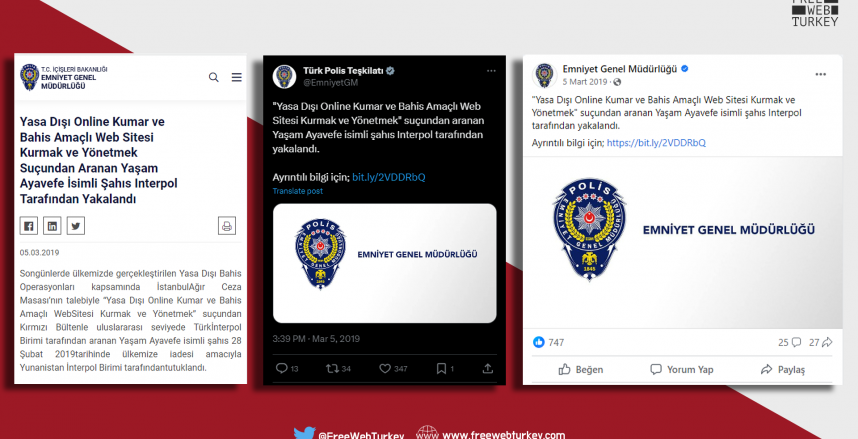
Turkey’s Media and Law Studies Association reports that the convicted Turkish fraudster Yasam Ayavefe – the subject of a BIRN investigation – got courts to remove 201 online content items about him, including some on the Turkish Police website content.
A convicted Turkish fraudster, Yasam Ayavefe, whose questionable acquisition of Greek citizenship was reported by BIRN, managed to get 201 online content items in Turkey removed under three court orders, the Turkish Media Law Studies Association MLSA’s Free Web Turkey project revealed.
The removed content includes news articles, social media posts and even the official website content and social media posts of the Turkish Police.
An investigation by BIRN and its Greek media partner Solomon in September 2022 revealed that the Turkish businessman acquired honorary Greek citizenship in June 2021 via his political ties.
“Ayavefe’s decision to block access is not a surprise. People who face allegations of corruption, irregularity or any other illegality, immediately apply to the court to block access to news and social media posts containing those allegations,” Ali Safa Korkut, Project Coordinator at the MLSA, explained.
Korkut told BIRN that under Turkish laws it is easy to get online content removed.
“The courts do not show any care when evaluating these access ban applications. In many access-blocking decisions, the URLs for which access-blocking is requested are not checked at all by the judges. Access-blocking decisions are made even for content that has nothing to do with the person requesting access-blocking,” Korkut said.
However, he underlined that Ayavefe’s case is different to most others.
“What is surprising about the decision taken regarding Ayavefe is that the decision was made to block access even for the content shared on the official website and social media accounts of the Turkish Police, stating that Ayavefe was caught by Interpol,” Korkut added.

The MLSA report also noted Ayavefe’s request to BIRN to delete several pieces of content.
In July, Bener Ljutviovski, a representative of Ayavefe, asked BIRN to delete its report about him. He also urged BIRN to delete articles about cyberattacks that targeted the Balkan Insight website after the publication of the investigation.
Ljutviovski insisted that Ayavefe had “nothing to do with these accusations” and was being accused “without any proof” of being connected to the DDoS attacks on BIRN’s Balkan Insight website and Solomon’s site after the publication of the investigation.
He called on BIRN to take down the articles in line with Turkish court rulings even though one of those judgments clearly stated that domestic courts in Turkey cannot remove online content of “foreign origin”.
He also appeared to offer BIRN financial incentives in return for compliance: “My client Dr Yasam Ayavefe has an advertising company, if you help us in this case we can provide advertising service to your organisation, so you can grow to bigger organisation. We would love to cooperate with you,” he wrote.
BIRN declined Ljutviovski’s offer and rejected his repeated demands to remove the articles about Ayavefe.